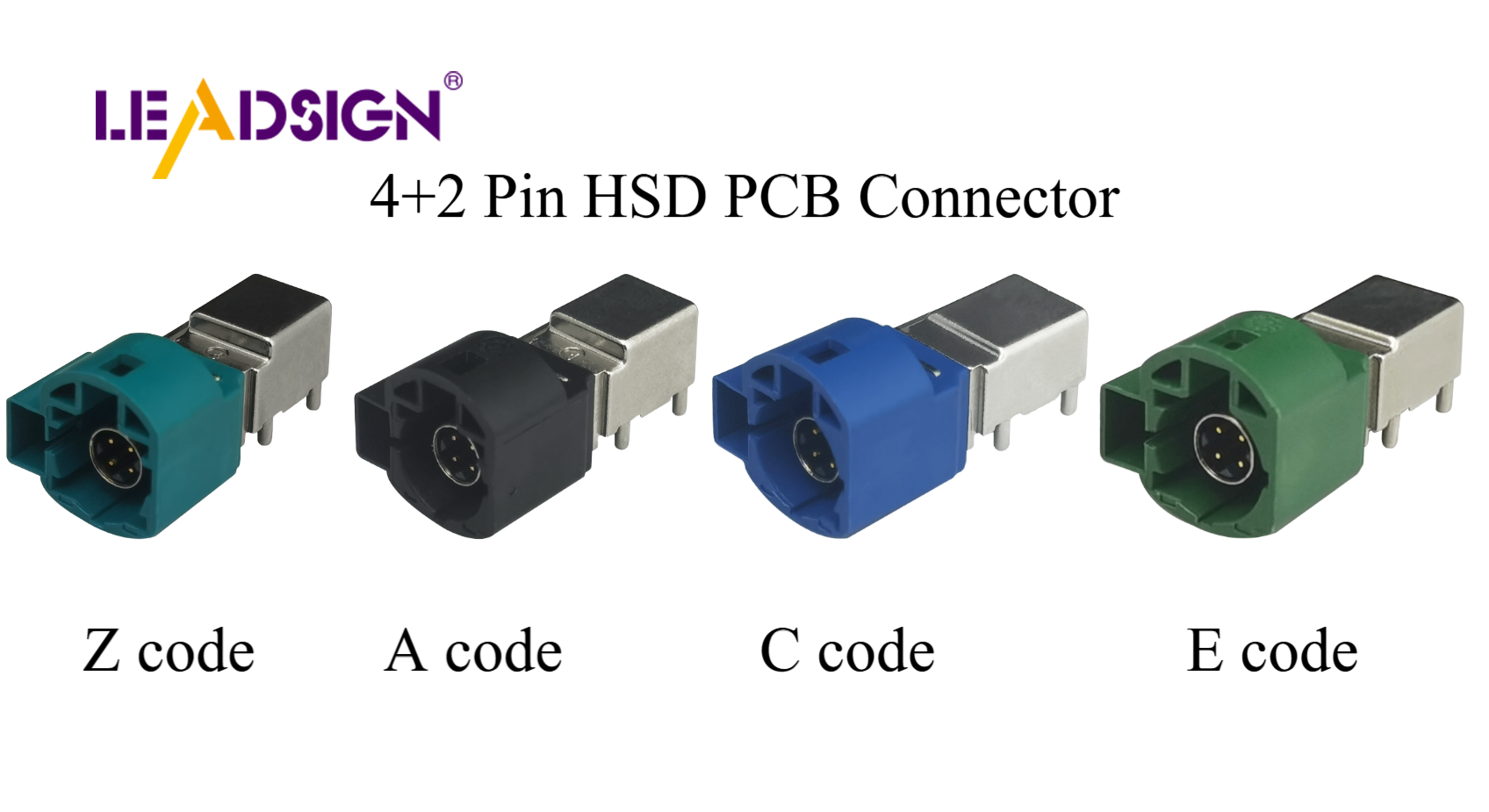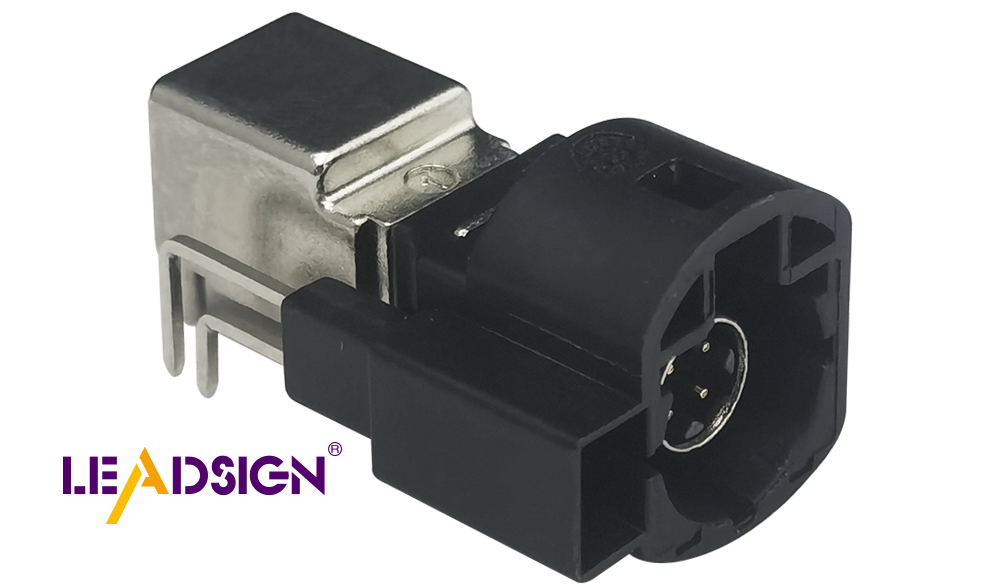Why Automotive Plugs and Connectors Are Key to Vehicle Efficiency

Automotive plugs and connectors are very important in today’s vehicles. They help different systems work together, improving how cars run and stay safe. These parts maintain strong electrical links to prevent problems in the car. High-quality automotive plugs and connectors support advanced tools like safety systems and entertainment features, ensuring they function effectively. They can withstand tough conditions like heat and vibration, so they continue to operate reliably. As cars become more advanced, these automotive plugs and connectors are increasingly essential. They are key to keeping cars running well and ensuring passenger safety.
Key Takeaways
Automotive plugs and connectors are essential for linking critical vehicle systems, ensuring they work together efficiently for optimal performance and safety.
Strong electrical connections provided by quality connectors prevent performance issues and enhance vehicle reliability, especially in challenging conditions like heat and vibration.
Regular maintenance, including checking and cleaning connectors, can prevent wear and tear, rust, and overheating, ultimately extending their lifespan.
Using the right type of connector for specific applications is crucial; it ensures compatibility and functionality, especially in modern vehicles with advanced technologies.
Protecting connectors from environmental factors such as moisture and heat is vital to maintain their integrity and prevent costly repairs.
Understanding the role of connectors in safety systems, like airbags and brakes, emphasizes their importance in keeping drivers and passengers safe on the road.
The Role of Automotive Plugs and Connectors in Vehicle Systems

Linking Important Systems
Connectors help connect key parts of your car. They let systems like the engine, powertrain, and safety features work together. Without good connectors, these systems wouldn’t work properly. This could make your car less safe and perform worse.
Modern cars use advanced connectors for new technologies like electric cars and driver-assist systems. These connectors move data and power quickly, helping these systems work well. For example, in electric cars, connectors handle fast data and power flow to keep the car running safely and efficiently.
By linking important systems, connectors make your car work better. They help all parts work together, improving how your car performs and stays reliable.
Keeping Electrical Connections Strong
Strong electrical connections are needed to keep your car safe and efficient. Good connectors keep parts connected without interruptions. This prevents problems that could hurt your car’s performance.
In tough conditions like heat or vibration, connectors stay dependable. Their strong design keeps them working even in hard situations. For example, in fast cars, connectors handle strong vibrations while staying connected.
As car technology grows, connectors must handle faster data and power needs. They are made to support systems like lights, entertainment, and safety features without stopping.
By keeping connections strong, connectors stop failures in your car. They protect important systems, so you can drive safely and confidently.
Systems That Depend on Automotive Plugs and Connectors
Engine and Powertrain Systems
The engine and powertrain need good connectors to work well. These connectors help the engine control unit talk to sensors and parts. They keep electrical links steady, controlling fuel, ignition, and emissions. This makes the engine run better and saves energy.
Connectors also manage how the battery shares power. They make sure the battery sends energy to the engine and other systems. Without strong connectors, power could stop, causing problems and breakdowns.
Modern cars use advanced connectors for fast data sharing. This helps check engine performance in real-time. It keeps the engine working its best, saving fuel and improving reliability.
Lighting and Electrical Systems
Your car’s lights, like headlights and turn signals, need connectors. These connectors send power and signals, making sure lights work right. If connectors fail, lights might stop, causing safety risks.
Connectors also power inside systems like music players and air controls. They keep these systems running smoothly without stopping. For example, they stop lights from flickering by giving steady power.
Good connectors handle tough conditions like heat and shaking. This keeps your car’s lights and electrical systems working well in hard situations.
Safety and Driver Assistance Systems
Safety features like airbags and brakes need connectors to work. Connectors send signals between sensors and controls, activating safety tools. For example, airbags use connectors to inflate during crashes, keeping you safe.
Driver help systems, like lane assist, also need strong connectors. These systems use data to watch roads and adjust driving. Reliable connectors make sure these tools work right, keeping you safer.
Connectors in safety systems are built to last. They stay strong over time, stopping failures that could harm safety features.
Common Problems with Car Plugs and Connectors
Wearing Out
Connectors in cars wear out from regular use over time. Plugging and unplugging often can make them weaker. This might cause loose connections and stop electricity from flowing. For example, a worn connector might fail to send signals to brakes, making them less effective in emergencies.
Driving vibrations also cause wear. Constant movement can loosen or damage connectors. This may lead to electrical problems that affect how your car works. Checking connectors regularly helps find wear early and keeps them working well.
Rust and Water Damage
Water is a big problem for car connectors. If water or moisture gets inside, it can cause rust. Rusty connectors don’t carry electricity well, which can make systems fail. For instance, a rusty connector might stop airbags from working in a crash, risking safety.
Road salt, especially in winter, makes rust worse. This is a bigger issue for connectors near the engine or under the car. Using waterproof covers or coatings can protect connectors from water and keep them reliable.
Heat and Overuse
Connectors near the engine or exhaust face high heat. Too much heat can weaken them, causing cracks or melting. This breaks the connection and can lead to electrical issues. For example, heat-damaged connectors might stop power to the engine control unit, hurting performance.
Overuse is another issue. If connectors handle too much power, they can overheat and fail. This is common in modern cars with high-power systems. Using the right connectors for the job and installing them properly can prevent these problems.
Maintenance Tips to Avoid Connector Problems
Check and Clean Often
Check your car’s connectors regularly to spot problems early. Look for cracks, loose parts, or color changes. Watch for signs like flickering lights or power loss in systems. These might mean the connectors or wires have issues.
Cleaning connectors is also very important. Dirt and grease can block electricity and cause problems. Use a soft brush or special cleaner to remove dirt. Don’t use water or strong chemicals, as they can cause rust. Clean connectors work better and last longer.
Install and Handle Carefully
Use the right connector for each part of your car. Good connectors are made for specific power and data needs. Make sure connectors fit tightly and line up correctly when installing. Loose or crooked plugs can stop power or data flow.
Be gentle when handling connectors during repairs or installs. Don’t pull on the wires, as this can break them. Hold the connector firmly when plugging or unplugging. Careful handling helps connectors last longer.
Protect from Damage
Protect connectors from things like water, heat, and dirt. Use waterproof covers to keep moisture out, especially near the engine or under the car. This stops rust, which can ruin connectors.
Heat-resistant materials are helpful for connectors near hot parts. While good connectors handle heat, extra insulation adds safety. For tough conditions, use sleeves or shields to protect connectors from damage.
By following these tips, your connectors will stay reliable. Taking care of them avoids expensive fixes and keeps your car working well.
Car plugs and connectors are important for safety and performance. Taking care of them stops problems that cost a lot to fix. Checking and cleaning them often keeps them working longer. This also makes your car more dependable. Caring for connectors helps key systems, like safety tools, work well. Knowing why connectors matter helps you keep your car in good shape. This makes driving safer and more reliable.
FAQ
What are automotive connectors used for in modern vehicles?
Automotive connectors join different electronic parts in your car. They send power and signals between things like the engine, sensors, and lights. These connectors are made to handle heat, shaking, and wet or dirty conditions.
Why are automotive plugs and connectors important for vehicle efficiency?
Automotive plugs and connectors help your car work better. They let systems talk to each other and work together smoothly. For example, they help the engine use fuel better, saving energy and improving performance.
What types of automotive connectors are commonly used?
There are many types of automotive connectors for different jobs. Some examples are:
Weatherproof connectors: Keep water and dirt out for outdoor use.
High-current connectors: Send power to the engine or battery.
Signal connectors: Move data for safety or entertainment systems.
Knowing these helps you pick the right one.
How do automotive connectors contribute to vehicle safety?
Automotive connectors make sure safety systems like airbags work. They send signals to sensors and controls to activate safety tools. A good connector can stop safety features from failing in emergencies.
What causes automotive connectors to fail?
Connectors can fail for many reasons, such as:
Wear and tear: Using them a lot can make them weak.
Corrosion: Water or salt can cause rust, stopping electricity.
Heat damage: High heat can melt or crack connectors.
Checking them often can stop these problems.
How can you maintain automotive connectors?
You can keep connectors working by doing these things:
Check them for rust, cracks, or other damage.
Clean them with a soft brush to remove dirt or grease.
Use covers to protect them from water, heat, and dirt.
Taking care of them makes them last longer.
Can damaged connectors affect vehicle performance?
Yes, broken connectors can stop power or data flow. This can make systems fail. For example, a bad connector in the engine can waste fuel or lower performance. Fixing them quickly keeps your car running well.
Are automotive connectors universal?
No, automotive connectors are not all the same. They are made for specific systems and cars. For example, power connectors are different from data ones. Always use the right connector for your car.
What should you consider when choosing automotive connectors?
When picking connectors, think about these things:
Application: Do you need it for power, data, or both?
Durability: Can it handle heat, water, or other tough conditions?
Compatibility: Does it fit your car’s system and needs?
Choosing the right one helps your car work better.
How do advanced connectors support modern vehicle technology?
Advanced connectors help new car tech like electric cars work well. They move power and data fast to keep systems running. For example, in electric cars, they connect the battery to the motor for safe driving.
See Also
Boosting Data Transfer: Significance of Fast Automotive Connectors
The Role of Fakra Connectors in Today's Vehicles
Improving Automotive Data Flow: Cutting-Edge Connectors and Wires
Significance of Fakra Connectors for Automotive Applications

